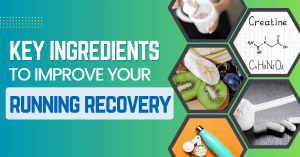Running has been link to a variety of health benefits; a regular running schedule can lower blood pressure, raise good cholesterol, boost immunity, and prevent many major diseases.
A study done by Stanford University involved a group of 961 individuals over 50 years old; 538 of the participants were runners, while 423 were not. Stanford followed this group from 1984 until 2005, each year asking them to take a disability questionnaire. The questionnaire measured simple tasks like cutting food, washing themselves, and opening jars or cartons. Every year the levels of disability in the non-runners where higher than in the runners, and as the group aged, the gap increased significantly. When the study ended in 2005, 85% of the runners were still alive, but only 66% of the non-runners where still living. One conclusion that may be made from this study is that running can potentially improve the quality of your life as well as increase your lifespan!
Unfortunately, similar to most things, there always seems to be some bad that comes with the good.
One of the downfalls of running, and exercise in general, is the effect it has on our body’s pH. Let me briefly explain how the pH of your body works, how exercise affects the pH level, and finally, suggest a list of foods that can help your body maintain balance.
The Basics of pH
A pH scale ranges from 1 to 14, and it measures the acidity of a substance. The more acidic the substance the lower the result will read, and the higher the reading the more alkaline (or basic) the substance is. The pH of our blood is supposed to be neutral, between 7.34-7.45. This neutral state ensures proper functions of the metabolic processes and delivery of oxygen to the tissues.
The reason pH balance is important is because any time our blood is not in the neutral state of 7.34-7.45 pH, the body will do whatever it must to get to the neutral state – sometimes at the expense of your overall health.
For example, if your body is in an acidic state, which is the most common problem, let’s say a pH of 6.6, it will leech buffering minerals, such as calcium, carbonate, and magnesium to get the pH back to the 7.35-7.45 range. Where is the body getting these buffering minerals? Our skeleton. Our bones contain 99% of our calcium, 37-49% of the body’s sodium, 53-80% of the body’s magnesium, and 59-83% of the body’s carbonate. When these minerals are continually leeched from our bones, over time the bones grow weaker.
What Causes an Acidic State?
There are a number of things that can cause an acidic state in your body; these things include diet, stress level, and exercise. Yes, exercise does increase the acidic level of your body.
Running Increases the Acid Level in the Body
Generally, when you first start a run, you’re in an aerobic state. You breathe in, the body efficiently uses all the oxygen it needs to power the muscles, and you exhale. Basically, when you are “running aerobically”, your muscles have enough oxygen to produce all the energy they need to perform. However, if your run is long enough or hard enough, your muscles won’t be able to keep up with the demand of oxygen, and your body will go into an anaerobic state. In this anaerobic state, your body produces lactic acid. This lactic acid build up affects the pH of the blood stream and, therefore, results in an unbalanced pH of the body.
Another way running increases the acidic state of the body is the increased demand for oxygen. If you live at a higher altitude, you will realize the importance of oxygen when running. When we run, blood carries oxygen to our muscles and exchanges it for carbon dioxide. Typically, the blood stream then carries the carbon dioxide to the lungs, which is then exhaled when we breathe. When we are running and our heart rate is increased, the release of carbon dioxide through the lungs is hindered. Therefore, the carbon dioxide builds up in our blood stream, lowering the body’s pH level to an acidic state.
Signs Your Body’s pH Is Acidic
The balancing out of pH in the body often doesn’t result in a noticeable external body change, but there are some signs and symptoms that can be eliminated by balancing your body’s pH.
The most obvious is muscle soreness and fatigue. We have all experienced tight, sore, tired legs after a good, hard workout. Increased amounts of carbon dioxide in the blood can also cause fatigue or heavy breathing.
In addition to these running-specific symptoms, you may experience mouth ulcers, gastritis, acidic saliva, sensitive teeth, thinning nails, stomach ulcers, and dry skin to name a few symptoms of an unbalanced pH.
Benefits of Alkaline Foods
Personally, the benefits of running far outweigh the negative effects, so I am not going to stop running any time soon. However, I do believe in prevention, and I suggest that a runner do everything possible to reduce the negative impact running can cause.
Eating foods that are alkaline can help buffer the extra acid in the body that comes from running and supply the body with a tool to balance out the acid instead of the body having to pull the buffering minerals from the bones. Eating an alkaline diet has been shown to preserve muscle mass, reduce calcium loss, and improve growth hormone levels, which can improve body composition, memory, and cognition.
Alkaline and Neutral Foods
The foods listed on the table below are foods that either promote an alkaline response in the body or have very little effect on the body’s pH. The positive or negative number next to each food item indicates its potential alkalinity (+) or acidity (-) per gram. The higher the positive number the better the food is to help you reduce the lactic acid and balance the carbon dioxide levels running may build up in your body.
| Alkaline | Neutral |
| Alfalfa Grass +29.3 | Apples -8,5 |
| Asparagus +1.3 | Apricot -9.5 |
| Barley Grass +28.1 | Banana, Ripe -10.1 |
| Broccoli +14.4 | Banana, Unripe +4.8 |
| Brussels Sprouts +0.5 | Black Currant -6.1 |
| Cabbage Lettuce, Fresh +14.1 | Blueberry -5.3 |
| Cauliflower +3.1 | Cantaloupe -2.5 |
| Cayenne Pepper +18.8 | Cherry, Sour +3.5 |
| Celery +13.3 | Cherry, Sweet -3.6 |
| Chives +8.3 | Coconut, Fresh +0.5 |
| Comfrey +1.5 | Cranberry -7.0 |
| Cucumber, Fresh +31.5 | Currant -8.2 |
| Dandelion +22.7 | Date -4.7 |
| Dog Grass +22.6 | Fig Juice Powder -2.4 |
| Endive, Fresh +14.5 | Gooseberry, Ripe -7.7 |
| French Cut Green Beans +11.2 | Grape, Ripe -7.6 |
| Garlic +13.2 | Grapefruit -1.7 |
| Green Cabbage December Harvest +4.0 | Italian Plum -4.9 |
| Green Cabbage +2.0 | Mandarin Orange -11.5 |
| Kamut Grass +27.6 | Mango -8.7 |
| Lamb’s Lettuce +4.8 | Orange -9.2 |
| Leeks (Bulbs) +7.2 | Papaya -9.4 |
| Lettuce +2.2 | Peach -9.7 |
| Onion +3.0 | Pear -9.9 |
| Peas, Fresh +5.1 | Pineapple -12.6 |
| Peas, Ripe +0.5 | Rasperry -5.1 |
| Red Cabbage +6.3 | Red Currant -2.4 |
| Rhubarb Stalks | Rose Hips -15.5 |
| Beet +11.3 | Strawberry -5.4 |
| Carrot +9.5 | Tangerine -8.5 |
| Horseradish +6.8 | Watermelon -1.0 |
| Kohlrabi +5.1 | |
| Potatoes +2.0 | |
| Red Radish +16.7 | |
| Rutabaga +3.1 | |
| Summer Black Radish +39.4 | |
| Turnip +8.0 | |
| White Radish (Spring) +3.1 | |
| Avocado +15.6 | |
| Fresh Lemon +9.9 | |
| Limes +8.2 | |
| Tomato +13.6 | |
| Buckwheat Groats +0.5 | |
| Granulated Soy (Cooked Ground Soy Beans) +12.8 | |
| Lentils +0.6 | |
| Lima Beans +12.0 | |
| Quinoa + | |
| Soy Flour +2.5 | |
| Soy Lecithin (Pure) +38.0 | |
| Soy Nuts (soaked Soy Beans, Then Air Dried) +26.5 | |
| Soybeans, Fresh +12.0 | |
| Spelt +0.5 | |
| Tofu +3.2 | |
| White Beans (Navy Beans) +12.1 | |
| Caraway Seeds +2.3 | |
| Cumin Seeds +1.1 | |
| Fennel Seeds +1.3 | |
| Flax Seeds +1.3 | |
| Pumpkin Seeds +5.6 | |
| Sesame Seeds +0.5 | |
| Sunflower Seeds +5.4 | |
| Wheat Kernel +11.4 | |
| Borage Oil +3.2 | |
| Evening Primrose Oil +4.1 | |
| Flax Seed Oil +3.5 | |
| Marine Lipids +4.7 | |
| Olive Oil +1.0 |
Running definitely has its benefits; however, it is not perfect (though some of us would like to believe it is). Runners can eat smart to counteract the negative effects that a regular running schedule may have on their bodies. Add as many of the foods as possible on the alkaline list above to your diet to help your body combat the buildup of acid from your hard workouts and keep your bones as strong as possible!
Remember to eat alkaline; you may even want to post a copy of this helpful table on your refrigerator!
Resources
“Acid Alkaline Food Chart.” Alkaline Diet. N.p., n.d. Web. 20 June 2012. <http://www.balance-ph-diet.com/acid_alkaline_food_chart.html>.
Brown, Susan. “The Acid-Alkaline Balance and Its Effect on Bone Health.” N.p., n.d. Web. 20 June 2012. <http://www.healthstudiescollegium.org/docf/Jaffe-Brown_BoneHealthArticle.pdf>.
Erin, Digitale. “Running Slows the Aging Clock, Stanford Researchers Find.” Stanford School of Medicine. N.p., 11 Aug. 2011. Web. 20 June 2012..
Schwalfenberg, Gerry K. “The Alkaline Diet: Is There Evidence That an Alkaline pH Diet Benefits Health?”National Center for Biotechnology Information. U.S. National Library of Medicine, 12 Oct. 2011. Web. 20 June 2012. <http://www.ncbi.nlm.nih.gov/pmc/articles/PMC3195546/>.








8 Responses
There seems to be a logical leap here. I can see how exercise would cause an acidic state in the body. And I can see how, barring sufficient buffering minerals in the bloodstream, the body could leech minerals from the skeleton. But the missing link would seem to be the evidence that this actually happens – taken to the logical extreme, those who exercised the most would have the weakest bones, which doesn’t seem to be the case. In fact, the reverse, given that shock-creating exercise is recommended for those worrying about osteoporosis.
Hi Adam, thanks for the comments. We should have included some of the research, but the idea of nutrient leaching has been around for about 2 decades, so we just assumed it was a given. Here is a brief recap:
The theory of nutrient leaching was first proposed in the 1960s by scientists who hypothesized that human bones might be giving up calcium to compensate for pH imbalances caused by protein-rich Western diets. Evidence to support the theory accumulated in the 1980s, as scientists began to show that in rats, even small shifts in pH (such as a drop to pH 7.15 from 7.25) increased bone loss up to six-fold. To translate to humans, small studies on humans began to suggest that the body excreted more calcium, or less, depending on the acidity of the diet.
Moreover, in a 1994 study by scientists at UC San Francisco that was published in the New England Journal of Medicine, calcium levels in urine decreased in women who took potassium bicarbonate daily to neutralize the acid in their diets. The authors concluded that taking the potassium bicarbonate reduced the women’s bone loss and increased bone formation.
Finally, in a 2001 study conducted by Swiss researchers and published in the journal Osteoporosis International, four people placed on a high-acid diet excreted 74% more urinary calcium than four others placed on an alkaline diet (which included lots of mineral water).
I am sure there is more evidence, this is just what I could dig up quickly. Hp;e that helps.
Hi coach,
Thank you for the information in this article and in other articles too.
I am a beginner in running and I am a bit overweight. I started running about 14 months ago and I ran with some friends who were much lighter than me so I pushed myself a little bit. After about 10 or 12 runs I got better but I noticed that my breathing changed a lot. The upper part of my stomach became very tight which prevents me from taking deep breaths. Another thing is that when I take deep breaths and try to reflex the upper part of my stomach it makes me dizzy and sometimes very dizzy. The reason I posted this under this article is because I experienced many symptoms listed above such as dry skin. I think I should mention that these runs were in Ramadan(a name of a month) when we (Muslims) fast from dawn to sunset but in all these days I did nothing besides running so my body was in a rest all day long.
It really frustrates being unable to take deep breaths and when I do I feel very dizzy. I would appreciate it if someone can tell me about the mistake I made to be in this state and how I can recover or at least run without fear of making the same mistake.
Thank you very much
I have a health care career and have studied physiology and health related to diet quite a bit. In response to Mr Labidi, mild dizziness spells are frequently a result of dehydration. Dehydration may be the result of something in the diet or possibly a medication that he is taking. Or, maybe he just isn’t drinking enough water. The breathing difficulty could be something more serious or possibly related to his weight. He probably should have a medical evaluation and certainly focus on lower calorie intake to lose weight before pushing himself to hard with his running passion.
I’d also like to comment on calcium loss due to acid in the diet. I wonder, like Mr Engst above, why you rarely hear about experienced long distance runners suffering significantly from bone fractures but we always hear about old people who do very little exercise suffering fractures of various types. I doubt that distance runners are all following the low acid, low animal protein diet.